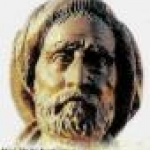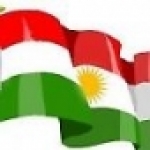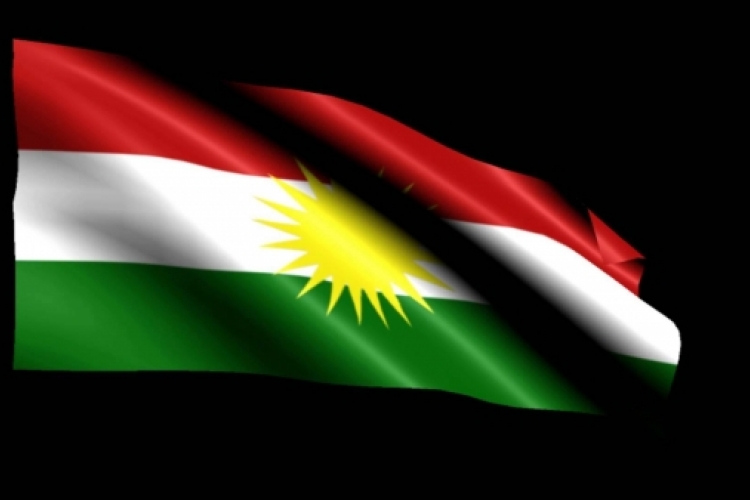Kurd, Hungary
| Kurd | |
|---|---|
|
Location of Kurd, Hungary |
|
| Coordinates: 46.44471°N 18.31631°ECoordinates: 46.44471°N 18.31631°E | |
| Country |
|
| County | Tolna |
| Area | |
| • Total | 31.19 km2 (12.04 sq mi) |
| Population (2004) | |
| • Total | 1,315 |
| • Density | 42.16/km2 (109.2/sq mi) |
| Time zone | CET (UTC+1) |
| • Summer (DST) | CEST (UTC+2) |
| Postal code | 7226 |
| Area code(s) | 74 |
Kurd is a village in Tolna County, Hungary.
Kurdish participation in the Ottoman administration in Hungary can be detected in two sorts of references: political and military figures whose Kurdish descent is known and people bearing the name of Kurd/Kurt/Kurth who might or might not have been ethnic Kurds.
A major literary monument of the nineteenth-century Hungary directly mentions the Kurds within the Ottoman context. Géza Gárdonyi (1863–1922) was one of the writers who contributed to what Anderson described as 'awakening from sleep', or the intellectual attempts to look for historical and linguistic definitions to assert Hungarian identity. He involved the Kurds as heroes of his famous novel Egri Csillagok (Stars over Eger).
The sources in general indicate on two sorts of Kurdish references: political and military figures whose Kurdish origin is beyond any doubt and people bearing the name of Kurd, Kurt or Kurth who might have been ethnic Kurds.
Thus, one cannot claim with certainty that the village of Kurd in Southern Hungary is bound to Kurd Pasha, a legendary military chief whose grave is located nearby. Yet, the fact that the residents of Kurd are interested in Kurdish affairs deserves to be highlighted. The name appears as Kurtu in the taxation letter of Dömösi and is to be found in similar forms later on. In 1542, the village belonged to Kaposment, but in 1543 a big portion of the population left it. In 1559-1560 a part of the residents came back. The rest, who moved to other places, kept their family names as Kurdi, and now one of the well-known Hungarian writers bears the name Imre Kurdi.
In 1730, decades after the Ottoman withdrawal from Hungary, the name Kurd were to be found in a source indicating on neopopulata possessio Kurd. But starting from 1729, new migrants came from central Hungary and were mostly of Slavic, Serbian and Slovak, as well as Magyar ethnic background. Since the midst of the eighteenth century and until the end of the World War II, the majority of the population were the Rheinland Germans, At present it is mixed: German, Hungarian and Gypsy. Yet, all of the 2000 residents proudly refer to themselves as Kurdi, a local patriotic definition which has lost any connotation with the legendary Kurd Pasha.
Another exempel can be: Yet, the most direct hint on the Kurdish factor in Hungary is the village of Kurd in Tolna county. The village and its mayor, Mr. István Cser and other residents came to the following conclusion: even if the name proves not to be a derivation from the ethnonym, the very possibility, in popular mind, of such a link is remarkable. Even more intriguing were the words of the local school-teacher Mrs. Ilona Tarr who in a private conversation reflected on the Abdullah Ocalan abduction scandal: "Though we are not Kurds – just the residents of the village of Kurd – we have been following the Ocalan affair. We took it personally, God knows why!"
After approximately 200 years of residency, Kurd's ethnic German Danube Swabian population was dispossessed of its property and forcibly removed to Germany following the end of World War II.
External links
- Street map (Hungarian)
- Kaczián, János, ed. "Kurd" [The community of Kurd]. Tolna megye kézikönyve. Magyarország megyei kézikönyvei, 16. Hatvan: CEBA, pp. 482–484.
- Vanly, Ismet Chériff. "Between Europe and Asia. The Kurdish Question". Lêkolîn (Journal of Kurdish Studies of Kurdish Institute in Berlin), 3, 1996, pp. 9–29.
- Hegyi, Klára and Pál Fodor. "Sikeretlen török adószerzési kísérlet a királyi Magyarországon" [An unsuccessful Turkish attempt at imposing taxes on subjects of Royal Hungary]. Keletkutatás, tavasz, 1995, pp. 97–103
- Várkonyi, Ágnes R. Török világ és magyar külpolitika [Turkish world and Hungarian foreign policy]. Budapest: Magvető, 1975.









